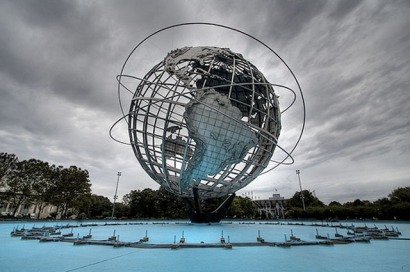
The top countries ranked 1 through 10 were Sweden, Switzerland, Canada, Norway, Finland, New Zealand, Denmark, Japan, France, and Austria.
The United States ranked 12th, the United Kingdom, 15th, and Spain, 16.
But over 90 countries, the council found, are still far from achieving fully sustainable energy systems.
The 2012 Energy Sustainability Index was published within the WEC’s 2012 World Energy Trilemma report, “Time to get real – the case for sustainable energy policy,” which found that most countries still have not managed to balance critical dimensions of the energy regime.
The World Energy Council’s definition of energy sustainability is based on three core dimensions -- energy security, social equity, and environmental impact mitigation.
The development of stable, affordable, and environmentally-sensitive energy systems defies simple solutions, the council said. The three goals above constitute a ‘trilemma’, entailing complex interwoven links between public and private actors, governments and regulators, economic and social factors, national resources, environmental concerns, and individual behaviours, it said.
“The message of the Energy Sustainability Index is clear: all countries are facing challenges in their transition towards more secure, environmentally friendly, and equitable energy systems," said WEC Chairman Pierre Gadonneix.
"What makes the difference is how they set their final goals, how they balance market economics and public policies, and how they design the smartest policies in order to promote efficiency and to optimise costs, resources and investments for the long term. If we are to have any chance of delivering sustainable energy for all and meeting the +2°C goal, we need to get real,” Gadonneix said.
The Index revealed that:
Joan MacNaughton, Executive Chair of the World Energy Trilemma report, said while much still needs to be done to make the world's energy systems sustainable, the panel assembling it did find some good news to go along with the discouraging.
“As our Energy Sustainability Index shows, countries that use a larger share of low-carbon energy such as renewables and nuclear as part of a diversified energy mix tend to perform better," MacNaughton said. "While these top performers also tend to be richer countries, some less affluent ones do also outperform their economic peers. What distinguishes all these countries from the others is that they have more effective and coherent policies.”
For the first time this year, the Energy Sustainability Index came with a set of country and regional performance profiles. Now in its third annual edition, the Index captures and aggregates country-level data to outline the relative energy performances and contextual attributes of the WEC’s member countries. Its global findings show:
Environmental impact mitigation remains a universal problem. In general, as countries’ GDP per capita increases they also rise up in the Index’s measures of environmental impact mitigation. Countries are likely to successfully mitigate CO2 emissions and to improve air and water quality if they low-carbon energy resources.
For developing and many emerging economies, providing high-quality and affordable energy access remains a significant challenge. The main challenge identified is that scarce financial resources on the demand and supply sides limit the functioning of markets and the ability to attract energy investments.
Mark Robson, Partner of Oliver Wyman, the global consulting firm Oliver Wyman which compiled the Index with the WEC, said, “Providing sustainable energy is the responsibility of both government and industry.
Robson continued, "As governments weigh up their countries’ priorities, businesses must be assured that the economics of their investments won’t be destroyed by changes in energy policy. This policy risk is a key factor holding back energy investments today. Therefore government and industry must engage in active dialogue about structuring policies that remain stable over time and are joined up with other policies.”
Countries at various stages of development struggle with energy security. Developing and emerging economies primarily struggle with energy security due to their strong consumption growth. Some developed countries, on the other hand, struggle to expand domestic production of energy to meet growing consumption.
However, countries with higher GDP per capita tend to have a more secure energy supply with the top 10 performers in the Index all ranking high in energy security, enabled by political will, strong institutional frameworks, and the necessary finances.
“As countries industrialise, their environmental impact increases. How to tackle this has been and will remain a major challenge for all policymakers," MacNaughton said. "But all countries – whether they are developing or already developed – must decrease their environmental impact while supporting affordable and accessible energy. The Energy Sustainability Index pinpoints the areas where countries need to work harder.”
CEOs and senior executives from leading energy companies had three main recommendations for how policymakers must expedite the development of sustainable energy systems: 1) Design coherent and predictable energy policies, 2) Support market conditions that attract long-term investments, and 3) Encourage initiatives that foster research and development in all areas of energy technology.
The WEC recommended policymakers establish coherent, long-term, accessible, predictable, and transparent policies that rise above narrow interests to respond to energy needs holistically.
Further, it said contradictory and ad hoc policies developed in isolated ‘silos’ hinder energy investments.
"Sound and coherent policies that are oriented toward results rather than around the types of energy or technology used to achieve them can - and should - enable the world to achieve energy sustainability," the report said. "A master plan must be developed that connects energy policies on two fronts. First, national energy policies must complement and link together national industrial, financial, environmental, transportation, and agricultural goals and policies. Second, policies concerning energy resources, infrastructure, environmental issues, and regulations must be regionally coordinated."
For additional information:

